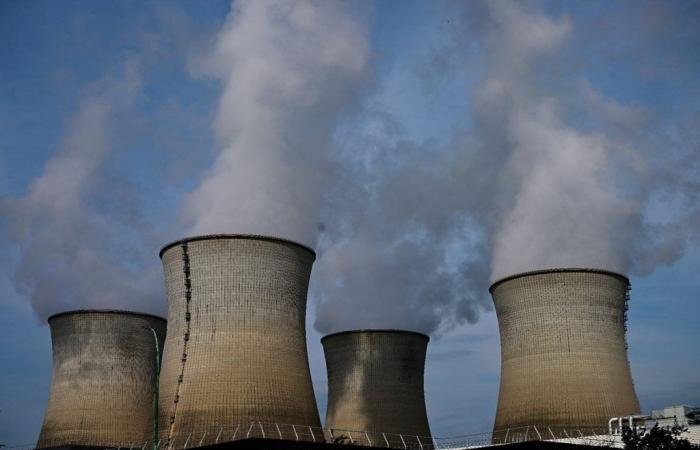The Three Mile Island nuclear power plant, infamous for the 1979 incident, is poised for an unexpected renaissance. A recent agreement between Microsoft and Constellation Energy sees the reopening of this iconic facility to power artificial intelligence data centers.
An innovative partnership for clean energy
Tech giant Microsoft has reached a groundbreaking deal with Constellation Energy. This collaboration aims to reactivate Unit 1 of the Three Mile Island power stationclosed since 2019 for economic reasons. The project, which should see the light of day in 2028, will allow Microsoft to acquire the entire energy production of the plant, or around 835 megawatts.
This colossal power, enough to power nearly 800,000 homes, will be integrated into the local electricity network. Although the energy will not be delivered directly to Microsoft facilities, it will help meet the growing demand for electricity data centers. These infrastructures are essential for the operation of generative AI models, cloud computing and streaming services.
It is important to note that other countries, such as those in the Persian Gulf, are also inaugurating their first nuclear power plants, demonstrating a renewed global interest in this energy source.
Nuclear renaissance and technological challenges
The reopening of Three Mile Island, renamed Crane Clean Energy Center, is part of a broader movement of nuclear revival. This trend is driven by the need to find reliable, carbon-free energy sources to support the rise of digital technology and AI.
Constellation Energy plans to invest $1.6 billion to revitalize the plant. This ambitious project includes:
- Thorough inspections
- Replacement of turbines
- Modernization of cooling systems
Federal tax credits and subsidies fromInflation Reduction Act will play a crucial role in financing this reopening. This initiative is part of Microsoft’s strategy aimed at decarbonize the electricity network and achieve his goal of becoming carbon negative.
AI, driving energy demand
The meteoric rise of artificial intelligence is leading to a exponential increase in energy needs data centers. According to a Bloomberg analysis, the consumption of these infrastructures increased from 100 TWh in 2012 to more than 350 TWh in 2024. Projections from the International Energy Agency (IEA) are even more impressive, with an estimated range between 620 and 1050 TWh by 2026.
Here is a summary table of the evolution of data center energy consumption:
| Year | Consumption (TWh) |
|---|---|
| 2012 | 100 |
| 2024 | 350 |
| 2026 (low estimate) | 620 |
| 2026 (high estimate) | 1050 |
This rapid growth raises questions about the sustainability and environmental impact of the development of AI. Reactivating nuclear power plants like Three Mile Island could offer a solution to this energy challenge, while limiting carbon emissions.
Vitally, China is also planning the construction of 11 new nuclear reactors, underscoring the strategic importance of this energy source in the global race for AI and advanced technologies.
A new balance between security and innovation
Despite historical concerns about nuclear safety, particularly after the Three Mile Island incident in 1979, the nuclear industry has evolved considerably. Statistics show that this form of energy is responsible for fewer deaths than most other sources of electricity generationespecially when taking into account the environmental impact of air pollution.
However, challenges persist, including:
- Long-term nuclear waste management
- High clean-up costs in the event of an accident
- Public perception and social acceptability
The reopening of Three Mile Island under the aegis of Microsoft and Constellation Energy marks a turning point in the history of nuclear energy in the United States. It illustrates the search for a new balance between the growing energy needs of the digital age and the imperatives of decarbonization. This initiative could pave the way for a new generation of nuclear power plants, designed to meet the technological and environmental challenges of the 21st century.






